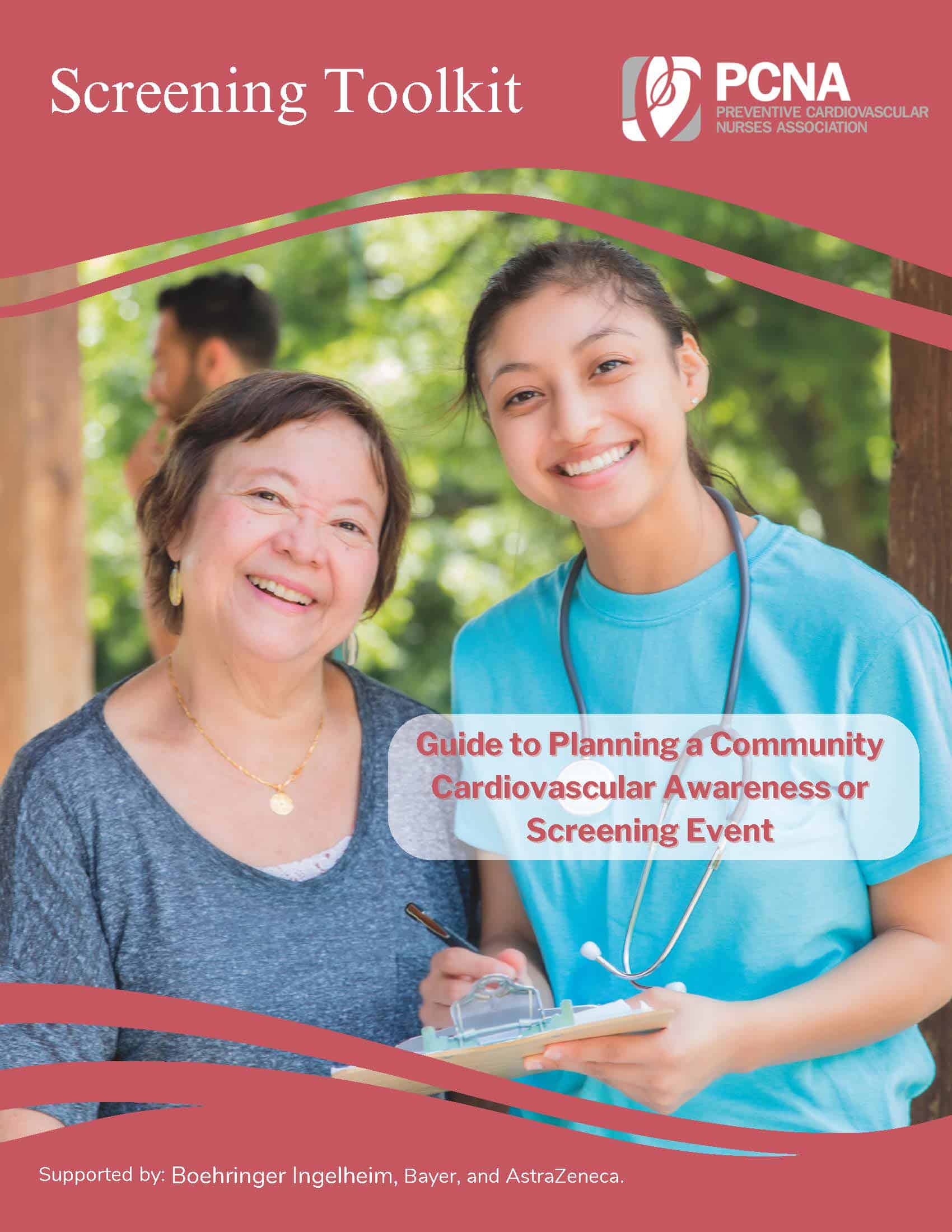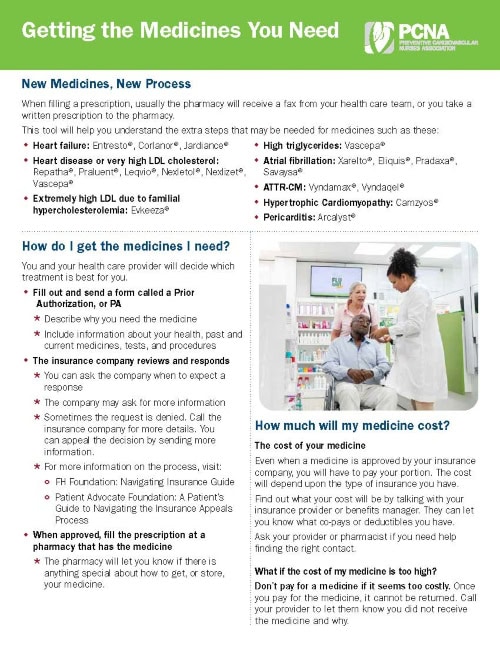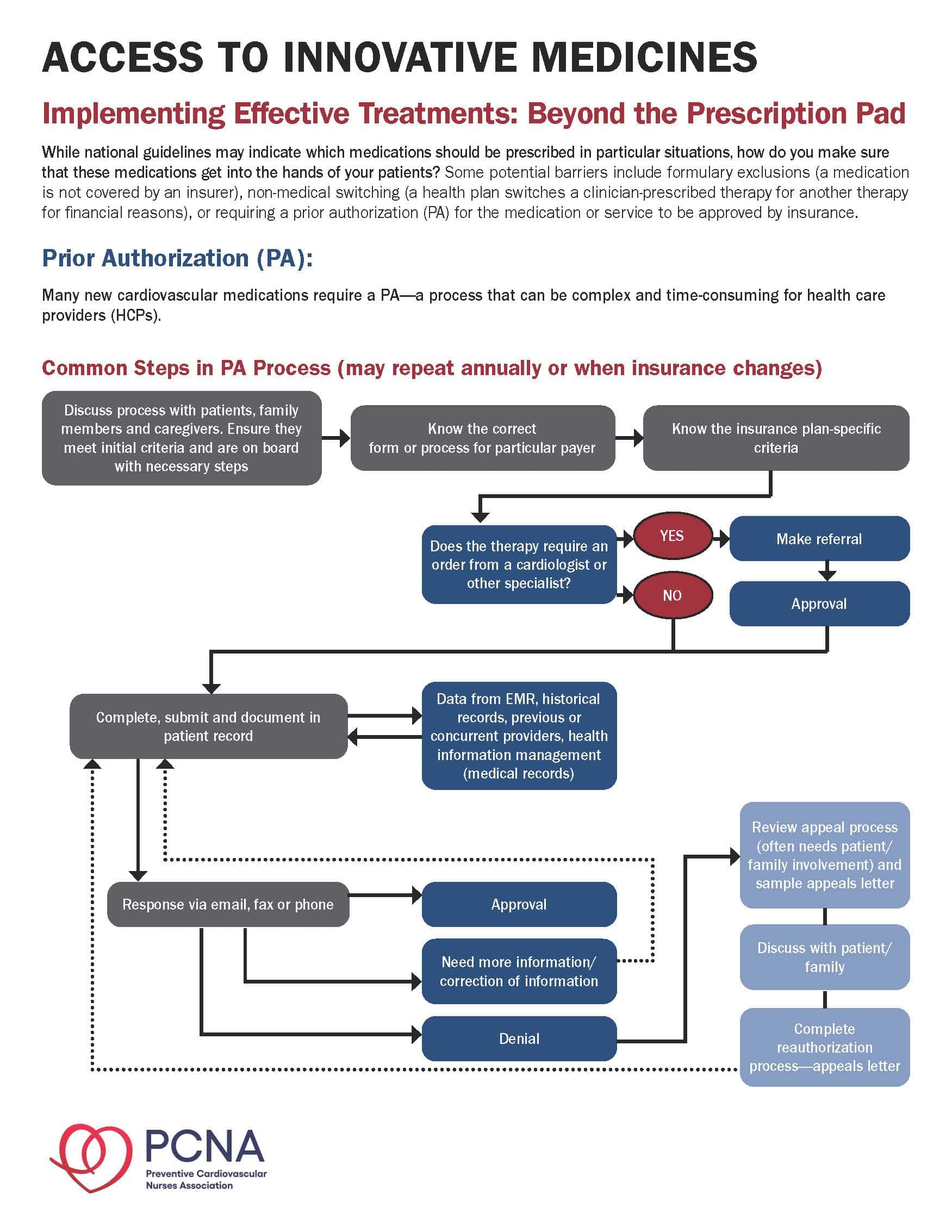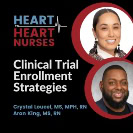Nurses are poised to make a huge impact on clinical enrollment to combat the ongoing underrepresentation of patients due to race, gender, abilities, and geographic regions. Guests Crystal Loucel MS, MPH, RN and Aron King MS, RN address these and other issues such as trial eligibility, access to study sites, lack of health care provider knowledge, and overall distrust in medicine.
Episode Resources
Supported by Cytokinetics, Incorporated, and Novartis Pharmaceuticals Corporation.
Geralyn Warfield (00:20)
Welcome to today’s episode where we’re going to focus on the importance of nurses in clinical trial enrollment. Today I’m joined by Crystal Loucel and Aron King. Crystal, could you introduce yourself, please?
Crystal Loucel (00:31)
Sure, thank you so much for having me. I’m excited to talk about the work that I do as a clinical research nurse at UCSF. I’ve been a nurse for about 12 years. It’s my second career after coming from public health as a health educator doing obesity prevention work. I’ve worked as a public health nurse, primary care, specialty care, and now research. And previously I was part of a research team at UCSF doing cardiac rehabilitation classes for breast cancer survivors with
Dr. Alexis Beatty, which is where I learned about PCNA and decided to join.
Currently, I’m now part of a first in human trials study approved by the FDA to provide islet cell transplants for patients with type 1 diabetes into the forearm muscle to help them become insulin independent, reduce hypoglycemia and hypoglycemia unawareness, and reduce their insulin use.
This is a small eight-person trial for people who have already had a kidney or liver transplant so that we don’t have to start immunosuppressants. And in my role, I help recruit patients, make sure they are healthy enough to join our trial, coordinate patient visits with our surgeons and endocrinologists and cardiologists as well. I review test results, I collect lab samples, I participate in surgery and support the surgeons while they’re doing their work, grab different items and supplies, collect data. And I manage patient care for any adverse side effects from our study surgery, which so far have been very minor. And I really enjoy working in chronic disease management and prevention. So we hope that this study will help patients come off insulin and reduce their risk of future complications, especially cardiovascular ones.
Geralyn Warfield (02:11)
Thank you so very much. Aron, how about you? Could you please introduce yourself?
Aron King (02:15)
Yeah sure, hello hello. My name is Aron King. I have been a nurse for 12 years, I started as an associate’s prepared nurse, ADN, and I’m currently a third year PhD student over at Betty Irene Moore School of Nursing at UC Davis here in Sacramento, California. I’ve worked bedside from med surg to cardiac telemetry and then ICU. I transitioned into leadership in 2020. Two weeks later, you know, we had the COVID and so that was a very interesting time to transition into leadership. So currently an assistant nurse manager at UC Davis. Outside of my role as a student, a nurse leader within my organization, I also sit on the executive board for Capital City Black Nurses Association. This is a local chapter of the National Black Nurses Association. We work to increase the number of black nurses in healthcare, support the current nursing workforce with the understanding that both of those help with some outcomes within our community. And then also, most importantly, for the purpose of this conversation, is I do a lot of community engagement. So I do education, community-based participatory research, and so on and so on.
Geralyn Warfield (03:26)
And Erin, could you tell us a little bit more about how you got involved in research? I know that we heard a little bit from Crystal, but could you expand a little bit more on that for us, please?
Aron King (03:35)
Yeah, it actually came along in kind of a strange way. I was working in two different hospitals. I was very much accomplished my goals that I kind of set forward. I know when I entered into nursing, you know, that was my goal. And then following that, I was really focusing on, you know, paying off student loans and things like that. So I worked in ICU and I was able to accomplish that with my secondary job. And, you know, ends were meeting or meaty or however they say it, and I wanted something different. So I applied and was admitted into a master’s program with no real plans of how the degree would help me professionally, just wanting to kind of challenge myself. And I remember we were in immersion and someone was like, hey, what are you interested in for your thesis? And I said, you know, I’m still kind of up in the air. And I remember going home and going, all right, step one, what is a thesis? Because I had no idea what it entailed, right? Because, my education from prior was all like very clinical based, like your skills. And so this was actually my first real introduction to research. I worked with a mentor, Dr. Kupiri Ackerman-Barger. And my thesis focused on the impact of microaggressions on symptoms of depression and satisfaction with the overall program. And we looked at graduate nursing students of color.
I really enjoyed, you know, the dissemination, the analysis. You know, it was survey based so the data collection wasn’t as interesting, I’ve been able to kind of sort of partner with other community organizations doing other research. My dissertation currently focuses on a mental health program for black men by way of the barbershop. And so we have that going. We’re actually running into our second year. So I’ve been doing that and actually has been frequently helping in recruitment for other studies because they see the connection that having with community by way of the barbershop and knowing that the black community, specifically our black population, specifically black men, you know is not well represented in research and so I’ve been helping with the recruitment of that.
Geralyn Warfield (05:48)
Thank you so much.
Crystal Loucel (05:49)
That just reminded me after hearing Aron share that I have another world outside of work that I do enjoy and similar to Aron, I really enjoy doing work with my National Association of Hispanic Nurses. I’m part of the San Francisco chapter and I’m one of the board of directors for the national organization and I co-chair the diversity, equity and inclusion committee with my co-chair and I’ve been part of this organization since I was a nursing student. I just Googled Hispanic nurses. They popped up. They happen to have a local chapter. And, part of being part of the organization was they always have grants available for the chapters to do some work. So they’ve partnered with large organizations like the Alzheimer’s Association or All of Us Research and have included us in being able to do education and recruitment of patients in our Latino community to be able to join and participate in this study. That’s kind of how I first got exposed into some research was by doing some community work.
Geralyn Warfield (06:59)
Well, I really appreciate both of you sharing your stories. And we know that every researcher’s journey to get to that point where they’re actually getting involved in research is very different. And we also know that nurses are key to the planning and implementation of clinical trials. What kind of unique roles do you see nurses filling, particularly in their capacity to build trust with patients? And maybe, Crystal, you could start us off.
Crystal Loucel (07:25)
Sure, yeah. So having been an experienced nurse in primary care and specialty before getting into research, I’ve had a lot of interactions and been able to understand how patients think about their healthcare, the struggles that they have with chronic disease, and it’s given me a really great foundation for being a research nurse. As a nurse, I not only understand the day-to-day challenges of what it’s like to live with a chronic disease like diabetes or heart failure because of my work, but I’m also a family member of a lot of relatives who live with chronic diseases like type 1, type 2, gestational diabetes, kidney transplant, heart disease, and having lived it side by side with my family members to see the challenges, the barriers, and the frustrations of their disease, I’m able to speak with the patients about the study in a language that they can understand.
One of the great skills of nursing is communication and being able to translate complex scientific jargon into regular language that our patients can understand. And I often share my story of why I became a certified diabetes care and education specialist after having so many family members diagnosed with diabetes and why this study that I’m working on is so important for me as a nurse and a family member of so many people with diabetes. Metabolic syndrome is also very common in my family. So in addition to diabetes, hyperlipidemia, hypertension and obesity, they’re all risk factors for cardiovascular disease. And I think it’s a common thread among nurses to be able to want to help our family members who are suffering with the disease and wanting to become a nurse and get into a role to help alleviate suffering and help people who are sick. And I think another one of our strengths is our ability to empathize and create ways to help people to help people feel better. And I think that’s what makes us one of the most trusted professionals in this country.
Geralyn Warfield (09:23)
Aron, do you have anything that you’d like to add?
Aron King (09:25)
I mean, I agree totally with Crystal. You know, I hope that we can speak for, you know, all our nursing education, our institutions, and saying that one of the fundamental skills that we do is learn how to build trust. That’s what we’re taught, right? And my experience is very, very heavily in the acute care setting. And so I love to kind of speak from there. So oftentimes, you know, I start these conversations when, you know, working to build trust, which is trying to learn about the person, right? And seeing a person as a person, right? And I think that’s still important, not only at the bedside, but it’s important as we talk about clinical trials, just understanding where are they from? Where do they live? What do they do for a living? What have they done for a living? And I myself, I really do recognize the mistrust that many people have in just healthcare, right? Let alone clinical trials, right?
So seeing people as people considering, now they’re considering clinical trials, establishing trust is not only important for participation, but also commitment to the trial. We are communicators, we are connectors. Another aspect of how we are educated from day one, lots and lots of group work, teamwork. We work on team papers, which I had never heard of until nursing school, like help? Work as a team to write a paper? I was like, where does that come from? And we continue to work as teams. We can communicate with different specialties. We communicate with different personalities. Considering our position at the bedside, right? And we are that connection to the patient. No matter who is talking to the patient, it has to come through nursing, right?
I feel like that’s part of the education is that everyone’s trained to come through the nurse, right? We’re the representative of the patient. And I think working in those interdisciplinary teams has really showed us how to work with different groups. And I don’t know if I could speak for the education of others, other disciplines, but I know that as nurses were primed to work in teams. And so that’s why it’s important for us to be in these kinds of spaces.
Geralyn Warfield (11:39)
We are going to continue our conversation in just one moment.
We are continuing our conversation about nurses and clinical trials with our guests, Crystal Loucel and Aron King. And we recognize that the importance of having a clinical trial cohort that includes patients with diverse races, ethnicities, ages, abilities, and other demographics such as urban and rural populations is really important to the individuals who are involved, but also other patients who could benefit from the treatments that we’re trying out or the medications that we’re trying out.
So I’m hoping each of you could talk a little bit about some tactics or strategies that nurses could employ to aid in enrolling patients who reflect this diversity. Crystal, how about you? Would you like to start with that?
Crystal Loucel (12:22)
Yeah, sure. So I’m a nurse of color. I’m a Mexican-American. My parents immigrated from Mexico to the United States for a better life. I don’t know how they did it to attend college because they are mainly Spanish speaking. But somehow they figured it out and were able to give me the opportunities to do the same.
And so having that bi-cultural and bi-lingual background adds to my value as a nurse and an employee for our study. Because I speak Spanish, I’m able to directly recruit patients who are monolingual Spanish or bi-lingual Spanish and speak with them through every step of the research project. But when you don’t have those bi-cultural, bi-lingual staff, it’s hard to trust the person getting you to do some random research project and treatment if you’re not able to understand it in your own language.
And research shows that Hispanic people have a high willingness to participate in research when they understand what’s required. There’s so much negative history about how past trials were done on people of color. They were lied to, taken advantage of, manipulated and harmed in various, serious ways. And there haven’t been many reparations for that. And in the Hispanic community, for example, Puerto Rican women in Rio Piedras, which used to research hormonal contraceptives, three women died. There was no investigation to address the concerns or compensation to their families. So it’s not surprising that people of color are afraid of participating in clinical trials. These days, there’s been a lot of change in developing standards in bioethic committees and creating safety in trials. So it has gotten a lot better. But I think it’s important to make sure that you have a staff that’s representing the community that you’re trying to get involved. As a staff member, we have to go through required trainings in human subject safety every two years. All research goes through the institutional review board, which reviews and approves any study involving humans. And it goes through a very extensive process. And this is something that I am able to share and explain to our patients in both English and Spanish.
And first and foremost, I don’t think I could ask others to participate in research if I myself as a nurse, as a human, haven’t participated myself to experience. So I’ve taken the initiative to get involved in several studies. One of them is the Nurses Health Study. The other is the All of Us Study. And at UCSF, I participated in several studies. It all started in college when you were able to get extra credit to participate in research studies, so I would often do it. And it was very simple things. Sometimes it was filling out a survey or questionnaire or having a conversation.
I’ve been in part of studies that varied from, you know, simple questionnaires to blood and urine samples. I’ve gotten an MRI. I’ve gotten an EKG. And I’ve even gotten my family involved in research because of diabetes and Alzheimer’s that run so strongly in my family. So my dad has gotten to get MRI scans of his brain as a healthy participant in the Alzheimer’s study where they track healthy people to see if they develop Alzheimer’s so they can see the progression.
And that’s one thing that I make very clear to my patients is they have a bill of rights. This includes the right to quit participating at any time for any reason. No reason is needed. They just tell me I’m no longer interested. And I think the other thing is giving patients all of the information about the risks and benefits upfront. In my experience as a nurse, I’ve learned that patients are willing to try treatments as long as they know what is expected. And if they’re educated about the risks, the complications, and they know how to detect and treat them, and they know what might be an option to those risks. As a diabetes educator, I would often get a referral for a patient who was labeled as non-adherent to a medication. And when we spent time discussing their issue, most of the time the patient was willing to go back on the medication after learning that the side effects were normal, expected, but temporary, and that the benefits would really benefit their health and we could plan for ways to make the side effects a little more tolerable by maybe taking the medication at night or with food or working with their schedule. And nurses have the knowledge, the skill set and the closest relationship with the patient to be able to spend a little more time to work through their concerns. I think one of the perks of being a clinical research nurse is how much time I have to spend with our patients. I get to know them very well, their families, their life very intimately because of the number of visits we have in a short period of time and as a nurse in the National Association of Hispanic nurses part of our work as an organization is to consult with various nonprofit organizations to help recruit diverse patients to their studies. We’ve worked very closely with All of Us and the Alzheimer’s Association by partnering with their staff at various health fairs to recruit we create social media videos to spread knowledge about research practices participation and we consult on their research plans and recruitment strategies. One example is here in the Bay Area, we partnered with Alzheimer’s Associations and a local DJ who had salsa dancing events in Oakland at the pier. And we had a table to share information about how to get involved with the study. The study was looking for both healthy and affected volunteers. And we had so many people come up to the table to discuss how they had a family member affected by Alzheimer’s and dementia.
Not only were they interested in participating to make a difference for the future, but also learned about the resources from the Alzheimer’s Association to get support for caring for their loved ones in both Spanish and English. They learned about the 24-hour hotline. And some patients are reluctant to participate because they don’t feel they have time or transportation to get involved. But many studies like ours will provide transportation, parking vouchers, child care, or compensation to get involved to try to make it easier for patients to participate. For other studies, they can come to your home or do a virtual visit by video or telephone. Sometimes it just takes asking the research coordinator if they offer assistance to make participating a little bit easier. So there are lots of ways to be able to recruit diverse populations and get them involved.
Geralyn Warfield (19:03)
Aron, what are some tactics that you can recommend or maybe even some things that we should be avoiding?
Aron King (19:09)
Yeah, so I also come from a racially marginalized community. You know, I’m black. There’s many others that come from other marginalized communities, or LGBTQA+. And so we have a special advantage to connecting with certain communities. Like I have a really great advantage to connecting with other black patients. Those that are interested, you know, in clinical trials and having these conversations. Crystal mentioned, you know, the historic mistrust that exists in our community, which really stems from the community’s history with medical malice. You always hear about the Tuskegee syphilis trial specifically in the black community. But more recently, we’re starting to hear more stories about like Henrietta Lacks and then less known is kind of like the Mississippi appendectomies, which were more of like the forced sterilization of black and brown indigenous women.
Mistrust really has two domains, right? So there’s the trust related to the ability to perform the skill, right? Can you do this surgery? Can you do this procedure safely? And then trust related to values, right? Are you operating in good faith? And that was a lot of what was going on when you see these different mistrusts, right? Connected to these historical events. It was not that they were not acting appropriately as far as their skill, is that they had other motives that they weren’t releasing out to the general public or even to those that are participating.
So, to combat that, we must do more than just, you know, what’s outlined in our job description, and that means getting out into community and participating clinical trials ourselves, right? And setting the example, practice what you preach, right? Crystal mentioned the All Of Us study and the health, the Nurses Health Study, which, I also participate in. And then just going out and establishing the trust, going out into the community, any kind of community events, just being present, having conversations. It shouldn’t be that we just connect to these communities when we need something, right? We should have long-standing connections. And we all come from large organizations, university research organizations, institutions, and this should be our give back to the community. So professional organizations, which were mentioned before, whether you’re talking about the National Black Nurses Association or the National Association of Hispanic Nurses, we have kind of long-standing relationships and community and we have the
trusted, we have kind of built a name for ourselves. Our name, you know, has established trust over 50 years, I believe most of our organizations have been around. So it’s important in making an initial effort for recruitment. This is all very important. And so we should really avoid on relying just on transactional relationships, right? It’s like, you’re receiving this payment or whatever it is to be a part of this trial, you know, any of that, like we should really try to stay curious, stay connected and really work with our patients. And I mentioned staying curious and I remember a study that I read and it had the community members that were participating in this clinical trial, they slowly just kind of started dropping out and they couldn’t really figure out why. And so the nurse, instead of really marking it up or chalking it up as the normal attrition that you see in certain communities, really reached out and is like, hey, you know, what’s going on? And can I help with anything? And she said, you know, there’s just the issue of transportation. And they were like, well, we’re offering this gift card for you to get on the bus and get connected down here to our organization and to make it to the institution. And the person was like, no, you know, to be blatantly honest, it takes a lot of time to get there. So jumping on this bus to catch two buses to get down there, that takes two hours. You know, yes, you are providing me with this gift card for transportation and also for my time, but it’s taken a lot longer for me to get there. Two hours to get there, an hour, whatever the transportation is. And so the nurse took that back and they decided, what can we do different? Right? So they decided to use a ride share. The individuals are getting picked up at their houses. And so that just kind of shows you the innovation and why you should stay curious because of that nurse, they were able to keep more individuals participating in the study, particularly individuals that were already underrepresented in the study and to keep them around and keep them engaged. And so there’s just some of the tips that I think that we should always do is just to stay curious. And the things that we should avoid is just chalking it up to a transactional relationship.
Geralyn Warfield (23:53)
I really appreciate that perspective of trying to look outside of the usual norms of what we do when we are doing clinical trials and what’s been done in the past in terms of even the logistical piece. That’s really important and honestly valuing the time and the resources of the people that we’re trying to get engaged to participate and being respectful of what it takes. It’s very easy sometimes for us to say “we just need to”, but if you don’t have that involvement, that long standing involvement in the community as you’ve described, Aron, I think that’s a missed opportunity for us to actually be engaged in a long term perspective. I do have a question for you that’s slightly different and that is for nurses who are interested in getting involved in clinical trials themselves, what one tip would you have for that nurse? And Aron, I’m going to start with you.
Aron King (24:41)
Sure. So, I mean, if you’re looking at getting involved as into, you know, working in the industry I think that you should start by getting your feet wet, right? And so, you know, I say that to everything, you know, honestly, for any nurses wanting to move into a different specialty, I say, you know, go out and check it out first. And so one opportunity, and I know that we’re not all working for larger institutions. I know Crystal works for, you know, another UC. But, you know, my hospital has a enter for nursing science, which is a really good touch point for those nurses that are interested in getting involved in research and so that’s your opportunity to be you know a participant to be, to actually work in the research and the way they do it they have several programs, several trials going on throughout the hospital. Different research that’s going on and then really connecting with the medical side where you could actually get involved in other things in the university and the research side. And so these offices have relationships with medicine like I mentioned and you know you don’t need to really look at going out and searching the web. I think that really just starting where you already are is always a good touch point.
And then I do have to shout out, you know, the Nurses Health Study, which I recently joined on the advisory board. It’s a huge longitudinal study for nurses. It’s a great opportunity to get involved as a participant prior to working on the other side, you know, and get to know the space, right? I just know that when entering into nursing, or excuse me, entering into research,
we should always keep in mind also entering in with humility. And so when you come in as a participant in the study, you kind of understand that. I say the same thing about health care. It wasn’t until I was a patient or I had a family member as a patient that I really understood the impact of my job, right? And my responsibilities. It wasn’t until I was relying on a nurse to help my son that I really understood how big my job really was. And so the same thing should be considered when you’re in clinical trials. There’s a lot of mixed emotion. You know, some people are fearful, some people are hopeful, some people feel hopeless, right? And so just understand that in many studies you will be faced with that. And so just take the time to listen.
Geralyn Warfield (27:02)
Crystal, how about you? What would your top tip be?
Crystal Loucel (27:04)
Yeah, so I think, you know, I don’t know if it’s just my personality or part of being a nurse and an educator is I love to network with people and connect. And so if you’re interested in getting into research, reaching out to people directly who are already doing research, most hospitals are involved in some kind of research on some level or reaching out to the universities in your area and looking at opportunities to either volunteer or become a paid research coordinator.
And then the nursing associations, a lot of them are also involved in research or have members who are involved in research. For example, our National Association of Hispanic Nurses has an evidence-based practice committee, and so they are constantly looking at research and putting out guidelines and are part of research institutions. So connecting with your nursing association and finding out who does research or are there any research projects going on, I think would be a great way to get involved if you’re interested. And then whatever specialty you might be in, so if you’re in cardiac, if you’re in med surg, if you’re in the NICU, your nursing association will likely have research that they are doing or have people that are in research and reaching out to them to say, hey, I’m interested in doing research in this area.
The way that I got interested was I was getting frustrated with the standard of care for my patient population during COVID and seeing what a big need that there was and not having enough solutions to really care for my patients and so I thought I want to go into another area of nursing where I can give my patients hope, where I can affect change on a larger scale and research was one of the ways to be able to do that.
Geralyn Warfield (29:02)
We have covered a lot of very important ground today when it comes to nursing and clinical trials, but I have one final question for each of you. And that is, what would you say, everything we’ve talked about is important, but what is the top takeaway from our discussion today for our listeners? Crystal, would you like to start?
Crystal Loucel (29:21)
Yeah, one of the joys of working in research has been giving my patients hope that the research we are embarking on can make the health of the future generations better. The patients that I work with are incredible. While they may get a benefit from our procedure, they are contributing a huge amount of knowledge to furthering science and laying the foundation for others to benefit from their volunteering to participate in clinical trials. And really sacrificing their physical, their emotional, and their time to participate. There are so many opportunities to get involved in research, whether you’re a nurse or not, and that could help save someone’s life. The www.clinicaltrials.gov is a great place to start. You can search for everything from depression to diabetes to rare conditions. And scientists and doctors all over the country and all over the world are doing research projects to help save lives and improve the health of people like yourself for so many conditions and the more people that get involved the more diverse our population. The sooner we can find treatments and cures and ways to improve health for everyone. You never know if your participation can be the cure for the next generation. And so whether you’re healthy or have a condition, they need both healthy and effective volunteers to participate. And it can be something small like answering a survey or wearing a Fitbit watch and tracking your stats. So it doesn’t have to be something as big as what my patients are going through and getting a full surgery, but it can be something small. And I think we can all contribute and make a small difference in that way.
Geralyn Warfield (31:08)
Aron, what do you think the top takeaway is from our conversation today?
Aron King (31:11)
I think there’s many ways as Crystal shared to get involved as a participant in the study. That’s all very important. And I think on the other side, we need nurses to work, right? Work with research, work with clinical trials because we understand the impact that we have on patients, on the connections that we’re able to make. I know oftentimes it is a little bit of a struggle when you move from, you know, we place a lot of value on these hard skills. And so when you move from an inpatient position, whether you’re working in ICU or the ED or any other specialty, that you’re less than moving to this other area. But you also bring such a wealth of experience and ability to connect, to be able to have conversations about end of life care, all that. Those are all skills that most people don’t have. And so when you’re walking in, you’re bringing that whole suitcase of skills into the research project so that you’re able to have these difficult conversations with patients. You’re able to keep, you know, keep their spirits up and have positive conversations.
I believe that nurses are needed in every space. We’re starting to see more of us involved in policymaking, more of us in elected positions, because we have so much of experience and we’re down with patients. We’re down with people during some of the worst and some of the best times of their life, right? And so I think anywhere you think you, whether you want to participate or work in research, I think we’re needed on both sides. And we will continue to make a difference that way.
Geralyn Warfield (32:38)
It has been a delight to spend time with our guests today, Aron King and Crystal Loucel. And if you haven’t had a chance to investigate the other parts of this podcast mini-series, we highly encourage you to do so because we’ve got some other great guests and other great content as well. Again, thank you so much for sharing your expertise with us and also some of those resources, which we will be sure to include in the show notes for our listeners and those people that are watching on YouTube and other sources to be able to see and get to for more information.
We’d also like to thank Cytokinetics Incorporated and Novartis Pharmaceuticals for their support of this particular episode. This is your host, Geralyn Warfield, and we will see you next time.
Topics
- Health Equity
- Research and Evidence-Based Practice
Published on
December 17, 2024
Listen on:
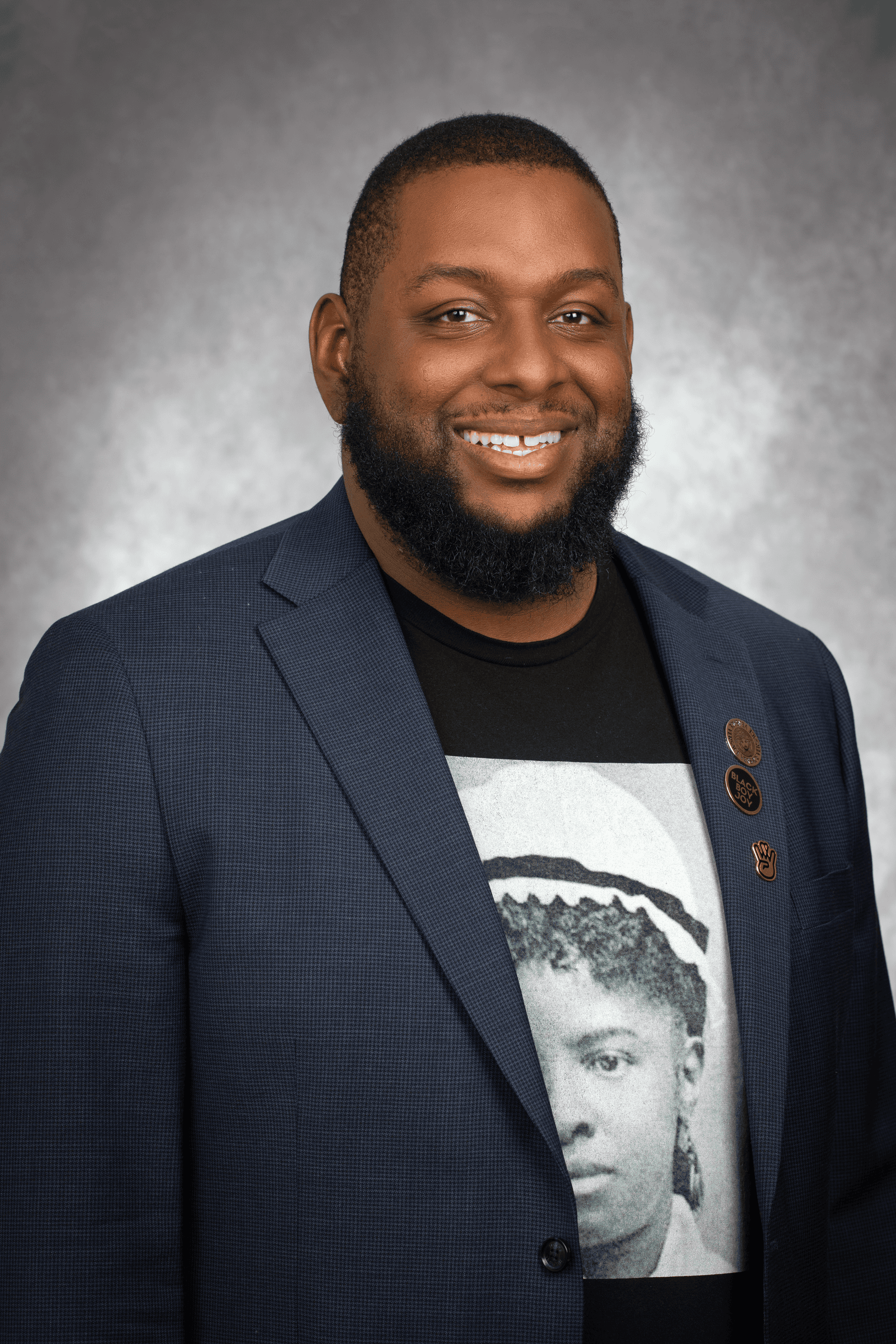
MS, RN
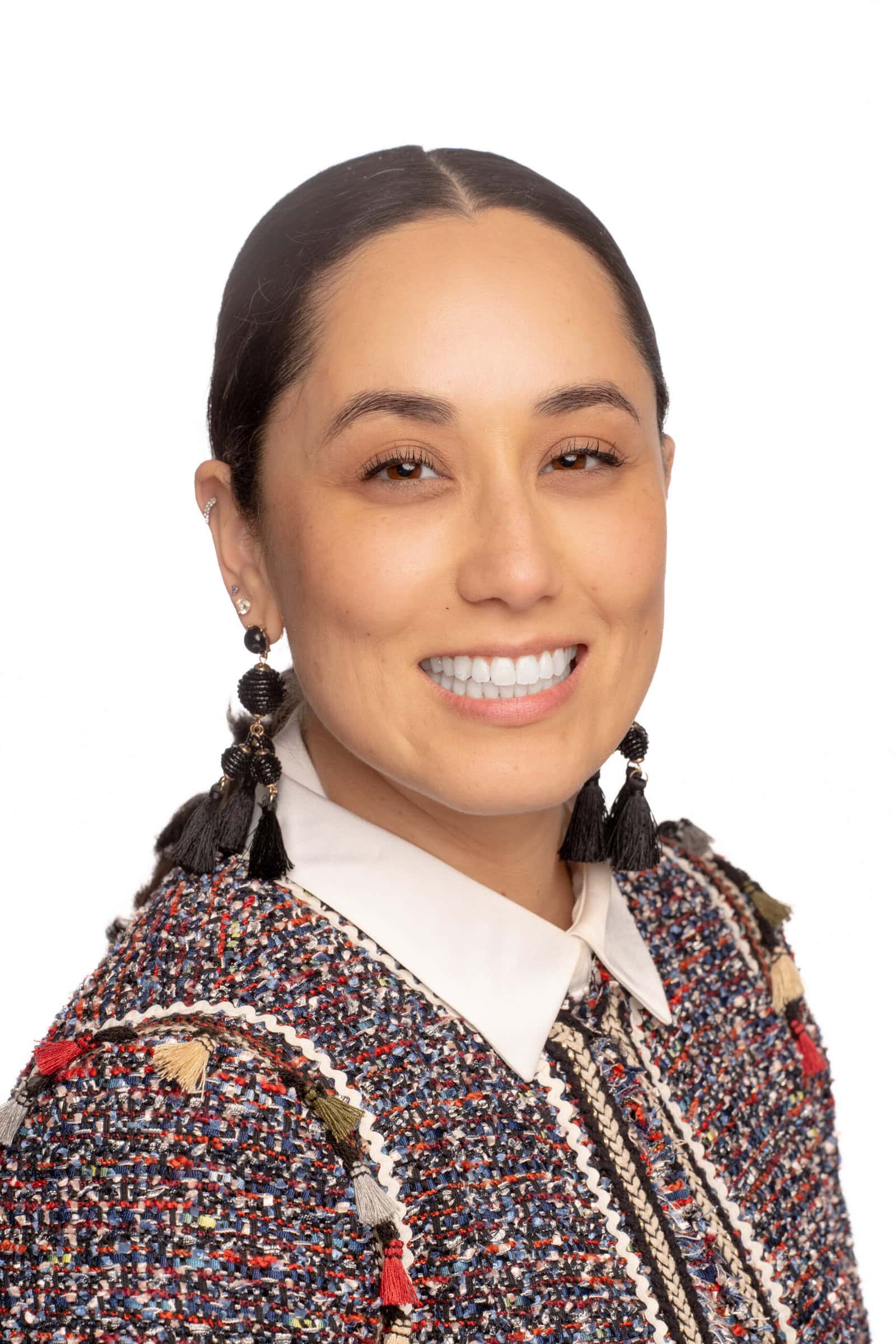
MS, MPH, RN
Related Resources
